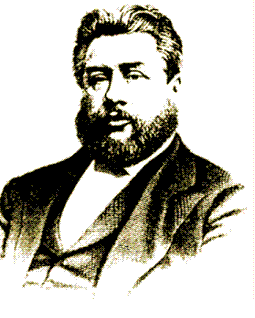
Excerpt from: The Doctrines of Grace Do Not Lead to Sin
August 19th, 1883
by
C. H. SPURGEON
"For sin shall not have dominion over you: for ye are not under the law, but under grace. What then? shall we sin, because we are not under the law, but under grace? God forbid."--Romans 6:14, 15.
Last Sabbath morning I tried to show that the substance and essence of the
true gospel is the doctrine of God's grace--that, in fact, if you take away
the grace of God from the gospel you have extracted from it its very life-
blood, and there is nothing left worth preaching, worth believing, or worth
contending for. Grace is the soul of the gospel: without it the gospel is
dead. Grace is the music of the gospel: without it the gospel is silent as to
all comfort. I endeavoured also to set forth the doctrine of grace in brief
terms, teaching that God deals with sinful men upon the footing of pure
mercy: finding them guilty and condemned, he gives free pardons,
altogether irrespective of past character, or of any good works which may
be foreseen. Moved only by pity he devises a plan for their rescue from sin
and its consequences--a plan in which grace is the leading feature. Out of
free favour he has provided, in the death of his dear Son, an atonement by
means of which his mercy can be justly bestowed. He accepts all those who
place their trust in this atonement, selecting faith as the way of salvation,
that it may be all of grace. In this he acts, from a motive found within
himself, and not because of any reason found in the sinner's conduct, past,
present, or future. I tried to show that this grace of God flows towards the
sinner from of old, and begins its operations upon him when there is
nothing good in him: it works in him that which is good and acceptable,
and continues so to work in him till the deed of grace is complete, and the
believer is received up into the glory for which he is made meet. Grace
commences to save, and it perseveres till all is done. From first to last,
from the "A" to the "Z" of the heavenly alphabet, everything in salvation is
of grace, and grace alone; all is of free favour, nothing of merit. "By grace
are ye saved through faith; and that not of yourselves; it is the gift of
God," "So then it is not of him that willeth, nor of him that runneth, but
of God that sheweth mercy."
No sooner is this doctrine set forth in a clear light than men begin to cavil
at it. It is the target for all carnal logic to shoot at. Unrenewed minds
never did like it, and they never will; it is so humbling to human pride,
making so light of the nobility of human nature. That men are to be saved
by divine charity, that they must as condemned criminals receive pardon by
the exercise of the royal prerogative, or else perish in their sins, is a
teaching which they cannot endure. God alone is exalted in the sovereignty
of his mercy; and the sinner can do no better than meekly touch the silver
scepter, and accept undeserved favour just because God wills to give it:--
this is not pleasant to the great minds of our philosophers, and the broad
phylacteries of our moralists, and therefore they turn aside, and fight
against the empire of grace. Straightway the unrenewed man seeks out
artillery with which to fight against the gospel of the grace of God, and one
of the biggest guns he has ever brought to the front is the declaration that
the doctrine of the grace of God must lead to licentiousness. If great
sinners are freely saved, then men will more readily become great sinners;
and if when God's grace regenerates a man it abides with him, then men
will infer that they may live as they like, and yet be saved. This is the
constantly-repeated objection which I have heard till it wearies me with its
vain and false noise. I am almost ashamed to have to refute so rotten an
argument. They dare to assert that men will take license to be guilty
because God is gracious, and they do not hesitate to say that if men are not
to be saved by their works they will come to the conclusion that their
conduct is a matter of indifference, and that they may as well sin that grace
may abound.
[This article can be viewed in its entirety at Bible Bulletin Board]
